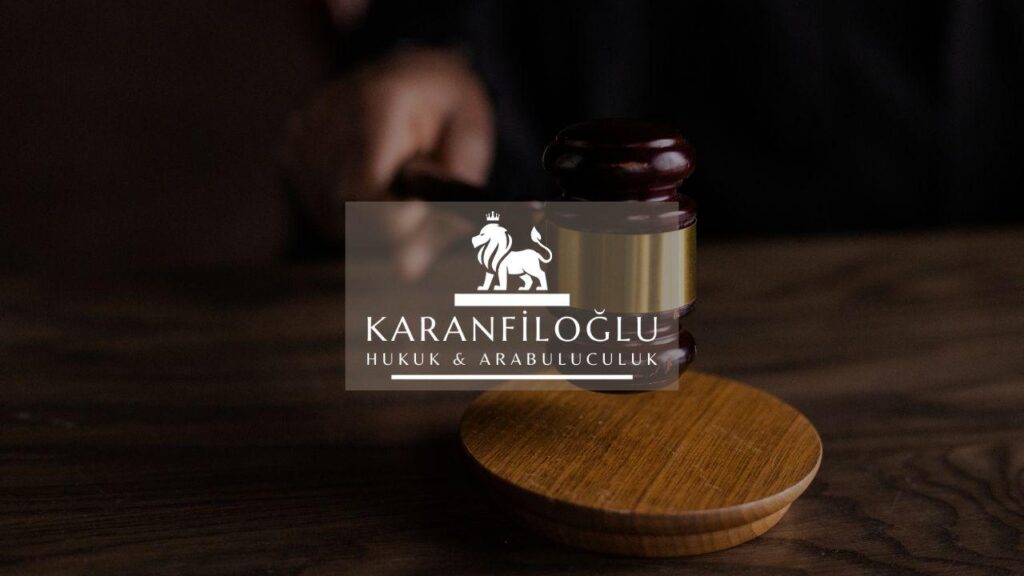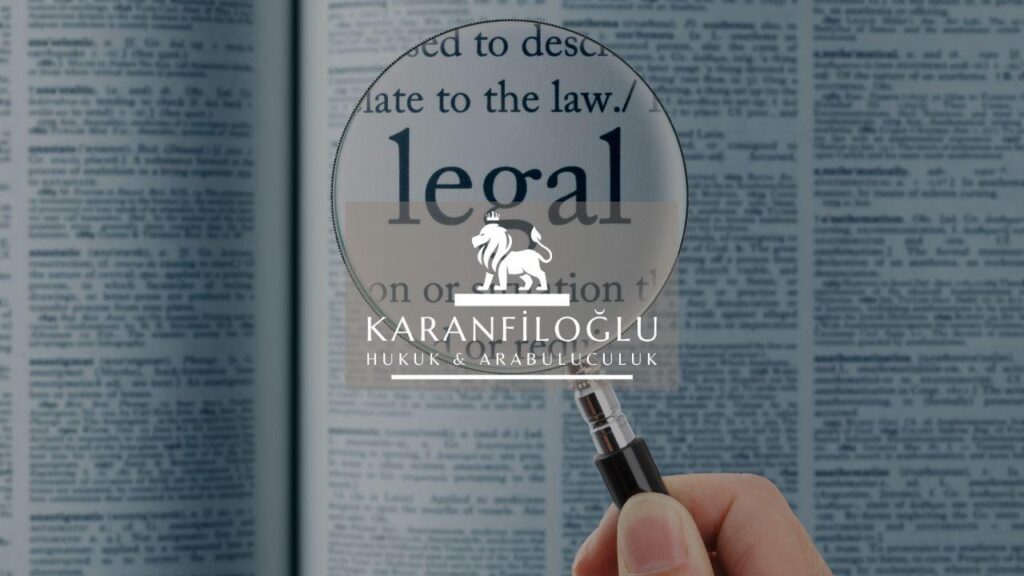Navigating consumer rights in Turkey requires a fundamental understanding of the legislative landscape designed to protect consumers from unfair practices. The core of consumer rights within the Turkish legal framework is enshrined in the Law on the Protection of Consumers (Law No. 6502), which encompasses comprehensive measures to safeguard consumer interests. Established to ensure fair trade, informed decision-making, and access to effective dispute resolution, this law regulates diverse aspects such as warranties, returns, and the prohibition of unfair terms in contracts. Additionally, the Turkish Penal Code (No. 5237) delineates specific penalties for deceptive commercial practices, further fortifying consumer protection. At Karanfiloglu Law Office, we specialize in guiding our clients through these regulatory processes, striving to uphold consumer rights effectively and efficiently. Whether you’re facing issues related to defective products, misleading advertising, or contract disputes, our expertise in Turkish consumer law aims to offer you robust legal support and resolution.
Consumer Protection Laws and Regulations in Turkey
The cornerstone of consumer protection in Turkey is firmly rooted in the Law on the Protection of Consumers (Law No. 6502), which was enacted to shield consumers from fraudulent practices and ensure their rights are respected in all commercial transactions. This law encompasses a breadth of provisions, ranging from the right to receive accurate information about goods and services (Article 5) to the right to withdraw from contracts within a designated period (Article 18). Furthermore, it requires businesses to provide guarantees for sold goods and services, thus reinforcing consumer trust and safety (Article 56). With these regulations, the Turkish government aims to create a balanced marketplace where consumer interests are defended against unfair practices, cementing a transparent and fair trade environment.
One crucial aspect of Law No. 6502 is the emphasis on consumer information and education. Article 60 mandates that consumers have the right to a clear and comprehensive understanding of their contractual obligations and the characteristics of the products or services they purchase. Businesses are obliged to provide transparent labels and clear pricing, as mandated under Article 55, ensuring that there is no ambiguity that could mislead consumers. Moreover, the law obligates sellers to make contract terms and conditions easily accessible, empowering consumers to make informed choices and reducing the potential for disputes. This level of transparency not only promotes informed decision-making but also fosters trust between consumers and businesses, ultimately leading to a more dynamic and trustworthy marketplace. At Karanfiloglu Law Office, we stand ready to assist clients in navigating these provisions, ensuring that their consumer rights are upheld at every transaction stage.
Navigating the landscape of consumer dispute resolution is another integral facet of Turkish consumer protection laws. As per Article 68 of Law No. 6502, consumers can seek recourse through Consumer Arbitration Committees for disputes under a certain monetary threshold. This provides an accessible, cost-effective means for resolving conflicts without resorting to lengthy court procedures. For more substantial claims, consumers have the right to take their case to Consumer Courts, as stipulated in Article 73, ensuring a judicial avenue for the protection of their rights. Furthermore, the law emphasizes measures against unfair commercial practices, delineated in Article 62, which allows for administrative fines and sanctions against businesses engaging in fraudulent activities. At Karanfiloglu Law Office, our team is proficient in navigating these judicial and administrative channels, offering comprehensive legal support to enforce consumer rights and secure just outcomes for our clients.
Essential Steps for Filing a Consumer Complaint
Filing a consumer complaint in Turkey begins with formally addressing the issue with the seller or service provider. Under Article 68 of Law No. 6502, businesses are obligated to respond to consumer grievances, and maintaining thorough documentation of all correspondence and transactions is crucial. If the issue remains unresolved, consumers can file a complaint with the Consumer Arbitration Committee for claims under a specified monetary threshold, as governed by Article 66 of the same law. For disputes exceeding this limit, consumers have the right to pursue their case in Consumer Courts, as per the provisions of Article 73. At Karanfiloglu Law Office, we guide you through each step, ensuring your complaint is articulated clearly and supported by the necessary evidence to achieve a favorable resolution.
The next step involves lodging a complaint with the appropriate Consumer Arbitration Committee, which is determined based on the consumer’s place of residence or where the transaction took place. As stipulated in Article 68 of Law No. 6502, applications must be submitted through written petitions or electronically via the Turkish Ministry of Trade’s official website. It is crucial to include all relevant documents, such as purchase receipts, contracts, correspondence records, and any other evidence supporting the claim. The Consumer Arbitration Committee then evaluates the complaint within six months, issuing a binding decision. For complex cases or higher-value disputes that fall beyond the Arbitration Committee’s jurisdiction, our experienced attorneys at Karanfiloglu Law Office are proficient in preparing and presenting cases before the Consumer Courts, ensuring that all legal formalities and evidentiary requirements are meticulously followed.
Understanding the possible outcomes and subsequent actions following a Consumer Arbitration Committee’s decision is vital for all parties involved. If either the consumer or the business disagrees with the Committee’s ruling, they have the right to appeal the decision in the Consumer Courts, as mandated by Article 70 of Law No. 6502. This appeal must be filed within 15 days from the notification of the decision. During this process, our team at Karanfiloglu Law Office assists clients in compiling a comprehensive appeal, highlighting procedural errors or substantial evidence that may have been overlooked. Furthermore, in circumstances where a favorable decision is reached but not adhered to by the opposing party, we provide enforcement services to ensure compliance with the ruling. With our extensive experience in consumer rights law, we aim to enhance our clients’ legal standing, securing adherence to and enforcement of consumer protection laws, thereby ensuring their interests are preserved.
Legal Remedies and Compensation for Turkish Consumers
Under Turkish law, consumers who find themselves adversely affected by defective products or misleading services have several legal remedies at their disposal. According to Article 11 of Law No. 6502, consumers are entitled to four primary rights in the event of a defective product: repair, replacement, a reduction in the purchase price, or a full refund. Additionally, Article 68 stipulates that consumers who suffer damages due to defective goods or services can claim compensation for both material and moral damages. Furthermore, the Consumer Arbitration Panels and Consumer Courts, as outlined in Article 66, provide accessible avenues for dispute resolution, ensuring that consumers are able to seek redress without undue burden. At Karanfiloglu Law Office, we are adept at navigating these channels to secure the best possible outcomes for our clients.
For consumers who encounter unfair contract terms, Law No. 6502, specifically Article 5, empowers them to contest and nullify any clauses that place them at a significant disadvantage. Moreover, the law guarantees transparency and fairness in contractual agreements, shielding consumers from hidden costs and misleading terms. In instances of false advertising, Article 61 of the same law provides that consumers can seek remedies, including the cessation of the misleading practice and compensation for damages incurred. By collaborating with legal professionals who specialize in consumer law, such as those at Karanfiloglu Law Office, victims of unfair practices can effectively challenge and rectify these violations, ensuring their rights and interests are adequately protected.
In addition to the remedies provided by the Consumer Protection Law, the Turkish Penal Code (No. 5237), particularly Articles 157 and 158, penalizes fraudulent and deceptive commercial practices, offering an additional layer of protection for consumers. Businesses engaging in such unlawful activities can face severe punitive measures, including imprisonment and substantial fines. This penal framework serves as a crucial deterrent against unethical business conduct. At Karanfiloglu Law Office, we leverage our deep understanding of both civil and criminal aspects of consumer protection to provide comprehensive legal strategies tailored to each client’s unique circumstances. Whether through civil claims for compensation or pursuing criminal charges against offenders, our dedicated team ensures that your consumer rights are vigorously defended and that you achieve the justice you deserve.
Disclaimer: This article is for general informational purposes only and you are strongly advised to consult a legal professional to evaluate your personal situation. No liability is accepted that may arise from the use of the information in this article.







